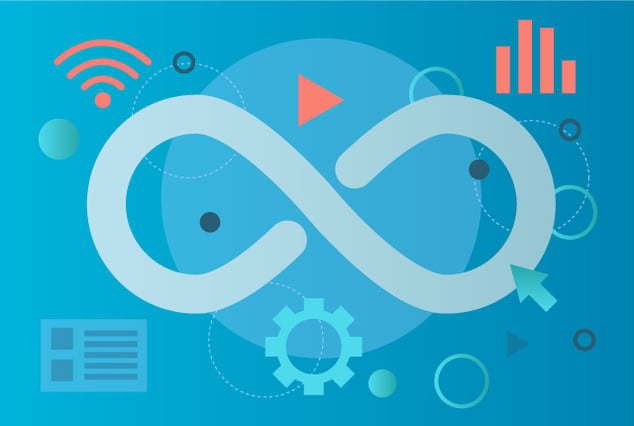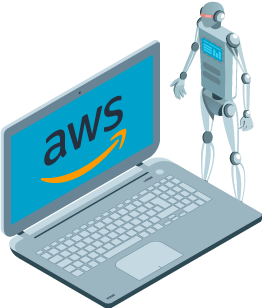
As the DevOps landscape undergoes a seismic shift, the integration of Generative AI emerges as a driving force, with Amazon Web Services (AWS) leading the charge. The demand for transformative solutions is evident in a market projected to reach $54 billion by 2028.
This blog delves into how AWS Generative AI not only aligns with these market trends but also spearheads the evolution of DevOps practices, offering a glimpse into the future of streamlined, efficient, and AI-powered software development and IT operations.
Why Generative AI in DevOps
Generative AI in DevOps has become increasingly crucial due to the evolving nature of software development and IT operations. DevOps aims to integrate and streamline the software development and IT operations processes to improve collaboration and efficiency. Here are several reasons why AI in DevOps, making it a crucial requirement in the present scenario.
- Generative AI can automate repetitive and time-consuming tasks in the software development and deployment pipeline. This includes code testing, deployment, monitoring, etc.
- It can analyze historical data to predict potential issues in the development and deployment processes.
- It can help identify trends, detect anomalies, and provide insights into potential bottlenecks or performance issues before they impact the system.
Market Trends
The global generative AI market size was estimated at USD 10.79 billion in 2022 and is projected to hit around USD 118.06 billion by 2032, growing at a CAGR of 27.02% during the forecast period 2023 to 2032. US generative AI market was valued at USD 2.7 billion in 2022.
Generative AI Market Size, 2022-2032 (USD Billion)
The global AWS managed services market, which was USD 845.54 million in 2022, is expected to reach USD 3,044.35 million by 2030 and is expected to undergo a CAGR of 15.3% during the forecast period 2023 to 2030.
AWS Managed Services Market Trends
Generative AI on AWS Cloud
Amazon Web Services (AWS) offers several services and tools related to generative AI that enable developers and businesses to build and deploy generative models. Some of these services include:
- Amazon SageMaker: SageMaker is AWS's machine learning platform that provides tools for building, training, and deploying machine learning models, including generative models.
- Amazon Rekognition: It allows you to create custom models to identify objects and scenes in images, which could indirectly support generative tasks like image captioning or generating content based on recognized objects.
- Amazon Augmented AI (A2I): This service helps to build workflows for human review of AI-generated content. It's particularly useful when you want to ensure the quality and authenticity of generative AI outputs.
- Amazon Textract: Amazon Textract makes it simpler to store, analyze, and manage such data by assisting you in extracting text and data from scanned documents, forms, and tables.
- Amazon CodeWhisperer: Using your comments and current code, CodeWhisperer may create code suggestions ranging from snippets to complete functions in real time. Skip time-consuming coding tasks and accelerate development using unfamiliar APIs.
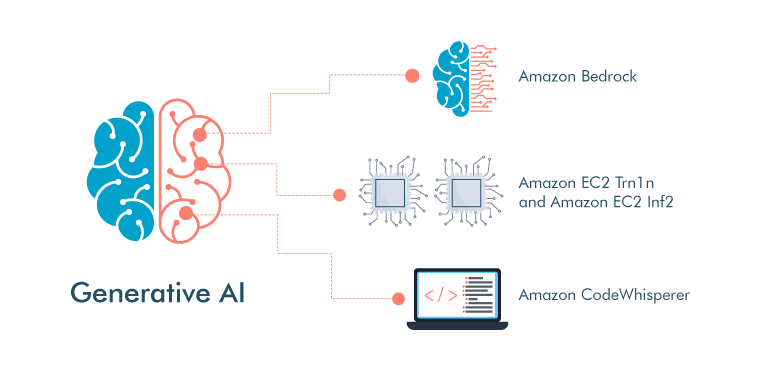
How AWS Generative AI Is Making DevOps Easy?
AWS (Amazon Web Services) provides a variety of services and tools related to Generative AI that can potentially contribute to making DevOps processes easier. AWS generative AI services involve using machine learning models to create new content, designs, or solutions based on existing data patterns.
Generative AI could be used to simplify the following DevOps tasks:
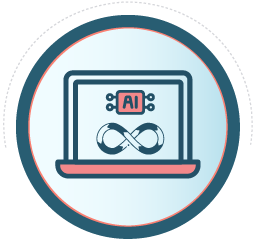
- Automated Code Generation: Generative AI can assist in generating code snippets, templates, or even complete scripts. This can save time for DevOps teams by automating the creation of repetitive or boilerplate code, such as configuration files, deployment scripts, or infrastructure as code (IAC) templates. AWS AI code generator tools like AWS CodeGuru and Amazon CodeWhisperer could leverage Generative AI to provide intelligent code reviews and recommendations.
- Resolve Incidents Faster With an AIOps Solution: The use of Amazon DevOps Guru service makes use of machine learning models that have already been trained to correlate and combine relevant anomalies in order to automate root cause analysis and fix problems rapidly.
- Locate Sources of Inefficient Application Performance: You can use an interactive flame graph in Amazon CodeGuru Profiler to pinpoint code pathways consuming the most resources and areas that need further optimization, helping assess CPU usage and latency in your application.
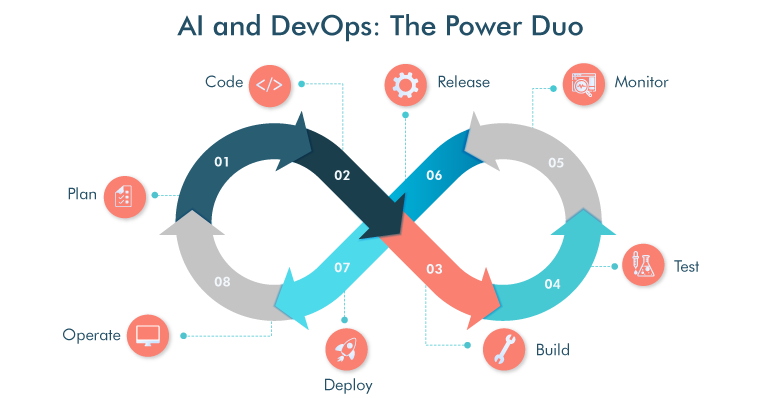
- Proactive Resource Management: Identify when your provisioned capacity will surpass the limits of your finite resources like memory, CPU, and disk space. Amazon DevOps Guru continuously monitors and analyzes your AWS-hosted resources and applications. It also helps prevent potential outages by issuing low-noise notifications on the dashboard.
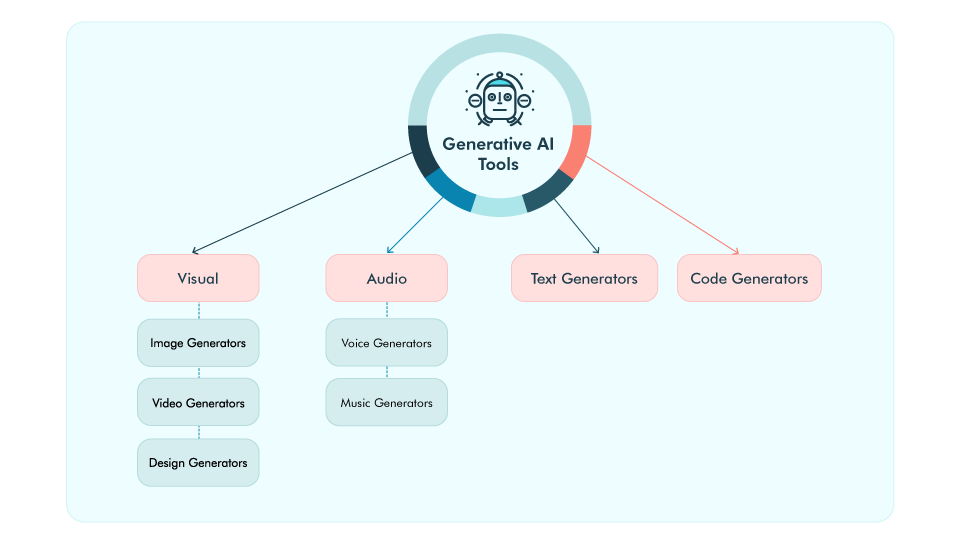
Challenges in Using Generative AI for DevOps
Although it may seem like the generative AI on AWS can make the majority of the DevOps tasks easy but there are also many challenges that a user can face while working with Generative AI:
-
Quality of Generated Content
Ensuring that the AI-generated code, configurations, or documentation are of high quality and adhere to best practices is crucial. Poorly generated content could lead to bugs, security vulnerabilities, or operational issues.
-
Integration Into Existing Workflows
Incorporating AI-generated content seamlessly into existing DevOps workflows and tools can be complex. Ensuring compatibility and integration without disrupting established processes is a challenge.
-
Contextual Understanding
Generative AI might struggle to fully grasp the contextual nuances and business logic specific to your organization's DevOps processes.
-
Lack of Creativity and Innovation
While AI can automate certain repetitive tasks, it might lack the creativity and innovation that human DevOps professionals bring to the table.
-
Limited Understanding of Domain-Specific Rules
Some DevOps processes require adherence to specific rules, regulations, or industry standards. The AI model might not fully understand these domain-specific requirements, leading to incorrect or non-compliant outputs.
-
Data Privacy and Confidentiality
Using sensitive data to train AI models can raise concerns about data privacy and confidentiality. It becomes essential to ensure that the inputs are pre-filtered and sensitized to prevent any sensitive information from being used in generating the required content.
Conclusion
While Generative AI has the potential to streamline DevOps processes, it's essential to recognize that it's not a universal solution. At QASource, our organization actively contributes in harnessing the power of Generative AI to enhance DevOps. We specialize in understanding the distinctive requirements and obstacles that organizations encounter in their DevOps workflows, offering tailored Generative AI solutions that effectively overcome these challenges.

